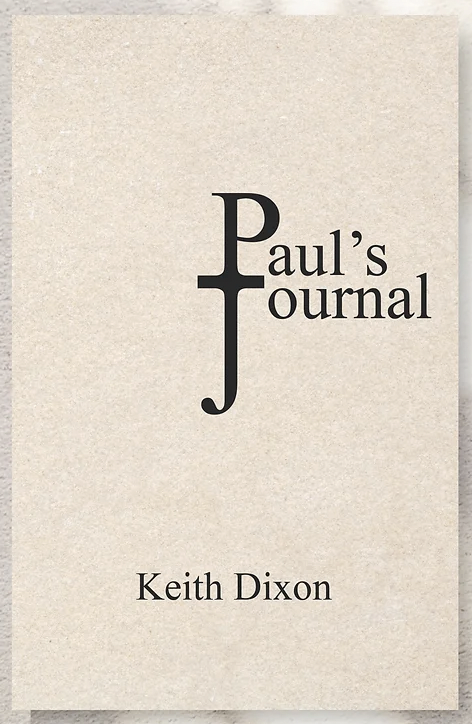Ep. 357 Keith Dixon Writes the Apostle Paul’s Journal

Keith, a fellow Hillsdale grad, joins Bob to discuss his new book, which is technically historical fiction but uses the New Testament accounts to construct Paul’s journal.
Mentioned in the Episode and Other Links of Interest:
- The YouTube version of this interview.
- The website for Paul’s Journal.
- Help support the Bob Murphy Show.

Praise Yaweh!
Keith’s claim that his book “doesn’t contradict scripture” may be true, in the sense that his understanding of scripture is Roman-Catholic and thus self-contradictory.
You cannot contradict a self-contradictory view because in opposing one aspect of the view you affirm the other contradictory one.
I didn’t hear Keith get anywhere near the important points to teach about paul’s ministry —
* To whom Paul went, and to whom he did not.
* How Paul’s teachings clarified the unity of Christ’s words with the Old Testament to each particular people.
* Who the heirs of the promise are and why
Nope. That’s the no-look zone, right Keith?
That is the place you can not look.
In His Name,
Does it matter that Keith isn’t Catholic, and gave a warning in the beginning of his book that he hopes Catholic readers won’t take offense at certain passages?
If you’re going to be obnoxious when you comment here, Clort, it would help if you at least knew what you were talking about.
My words were chosen to reflect the direness of the issue. I’m sorry that an acrimonious division on this subject exists but it was created ca. 1700-1800 years ago and not by me.
I categorize Keith’s commentary on Paul to be Roman-Catholic because he consistently represents the Roman-Catholic view as opposed to the apostolic Christian view.
I’m not using the term Roman-Catholic in contradistinction to descendent Christian sects such as Calvinism; I’m comparing it to the church before.
The protestant reformers had valid critiques, but they didn’t have the revelation that we have today, gleaned from 19th century archaeology, so they didn’t get within 12,000 furlongs of the core heresy.
The nature and purpose of the transformation of Apostolic Christianity to a State Religion acceptable to Herod’s gang is memory holed. It’s not your fault for not knowing about it. But it’d be interesting if you weren’t curious about it.
Roman-Catholic vs Apostolic is the relevant comparison to make when addressing the question of where Catholicism went wrong.
Dr. Murphy understandably assumed I was using that label in the modern context of Catholic vs protestant distinctions. I should have been more clear that I was not. I apologize for the error.
The claim I bring to you, is that Rome bastardized Apostolic Christianity by mating it to Roman paganism — to form a State Church, misnamed ‘Catholic’ — built on a core heresy that released over centuries a slow poison into our Christian faith and heritage and bones themselves.
And a bastard may not enter the into the congregation of the lord. (Deut 23:2)
One could consider the Institionalization of Christianity beginning with the Council of Nicea as something like the Constitutional Convention in the American history; you could argue that it was the necessary step to create a coordinating brain for purposes of self-defense of the body, or you could argue that it was a fatal corruption of the heritage and principle and thus the spirit.